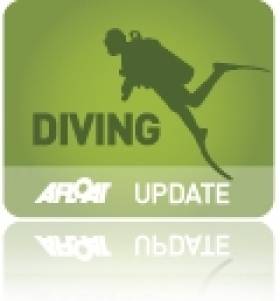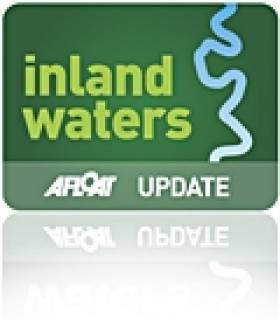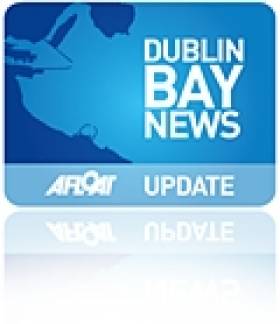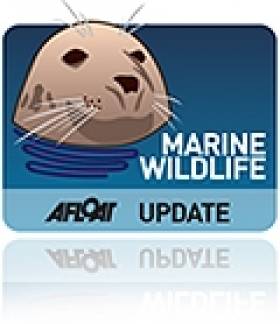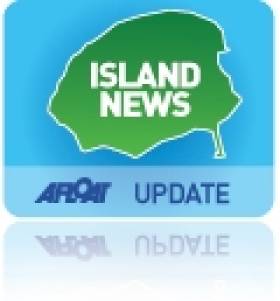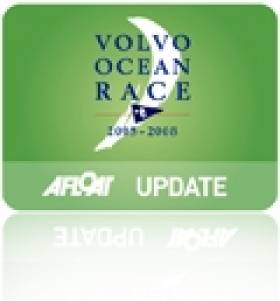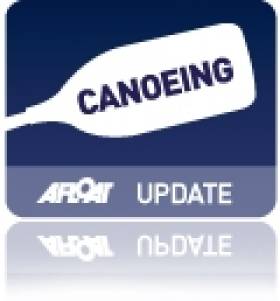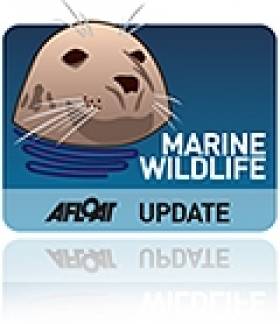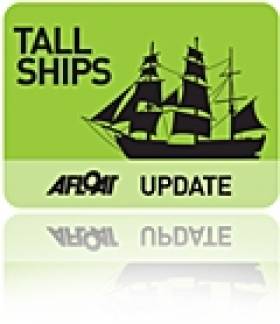Displaying items by tag: YouTube
Dive Ireland Expo Returns
#DIVING - Dive Ireland 2012, Ireland's only dedicated dive expo, promises to be bigger, better and feature more speakers, exhibits and workshops - everything for the dive professional as well as the complete beginner.
The 21st Annual International Dive Show, hosted by the Irish Underwater Council (CFT), will take place at the City North Hotel in Dublin on the weekend of 3-4 March.
This year's show will feature top SCUBA professionals including keynote speaker Rory Golden, who in 2000 became the first Irish diver to visit the wreck site of the Titanic, returning for a second visit in 2005.
Golden will be giving a series of talks on his experiences to mark the centenary of the ill-fated ship's sinking in the north Atlantic.
Dive Ireland 2012 will also feature a huge array of Irish SCUBA companies, free seminars and practical workshops that will cater to a wide range of diver interests, along with a host of in-show features guaranteeing a great day out for divers and non-divers alike.
Visit the Dive Ireland 2012 website for more details on tickets or booking a stand.
Amateur Photo Contest Celebrates Shannon's Biodiversity
#LIFE ON THE SHANNON - MulkearLIFE has launched its amateur photo competition for 2012, with a prize fund of €1,000 on offer.
The contest celebrates the 20th anniversary of the EU LIFE programme and has the theme of ‘Exploring the Biodiversity of the Lower Shannon’. Images may cover any aspect of the theme, and can be submitted in any style from macro to landscape, black and white or colour.
There is no end to what type of image can be submitted. It could be an image of water, trees, plants, fish, invertebrates, fungi, mammals, birds, lichen, domestic animals - basically any living organism.
Though not essential, images that portray biodiversity in and along rivers, streams and waterways throughout the Lower Shannon region would be preferred.
Entry is free, and entrants can submit up to three images. Prizes will be offered in two categories: Children/Young Adults and Adults.
In addition, the overall winner will receive one full day's training in wildlife and landscape photography from a leading wildlife photographer later in 2012.
Full details of how to enter the competition are available on the MulkearLIFE website HERE. The closing date is 1 May 2012 at 5pm.
DCC Rejects Clontarf Flood Defence Plan
#DUBLIN BAY NEWS - Dublin City Councillors have unanimously rejected controversial plans for flood defences in Clontarf.
As previously reported on Afloat.ie, councillors were set to vote last night on whether to give the green light to the scheme, which has faced strong opposition from local residents and business owners.
The flood barrier would have involved the construction of mounds or walls up to and above 7ft high along the Clontarf promenade.
However, following a vote last night, a redesigned proposal was rejected by the council, with officials admitting to The Irish Times that the public consultation process "didn't work".
Labour councillor Jane Horgan Jones said that it was now up to council officials and the local community to develop an acceptable plan to protect Clontarf from flooding in the future.
"However this is done, it must not be at the cost of destroying a beautiful, free and natural amenity that has been used by generations of Dubliners, from within and outside Clontarf, for many years,” she said.
The Irish Times has more on the story HERE.
First Sighting of a Dolphin in an Irish Lake
#MARINE WILDLIFE - The first recorded sighting of a dolphin in an Irish lake has been reported by the Irish Whale and Dolphin Group (IWDG), according to The Irish Times.
The dolphin was spotted in Lough Hyne, a saltwater lake near Baltimore in Co Cork by Skibbereen-based kayaking instructor Jim Kennedy, who filmed it over a number of days.
"To the best of my knowledge, and I’m open to correction, this is the first validated record of a cetacean using an Irish lake," said the IWDG's Pádraig Whooley.
Though there have been no further sightings since then, there is nothing to indicate that the dolphin has yet left the lough for the open sea.
As previously reported on Afloat.ie, Lough Hyne was also recently visited by a 13-metre fin whale that was sadly found beached in stormy conditions on the Sligo coast this week.
The Irish Times has more on the story HERE.
Working Group to Decide Future of Ireland's Only Cable Car
#ISLAND NEWS - Cork County Council has set up a working group to examine the future of the Dursey Island Cable Car.
The group, established with the objective of securing the future sustainable operation of Ireland's only cable car – and the only sea-going cable car in Europe - had its first meeting on Friday 4 November.
The cable car between Dursey Island and Ballaghboy on the mainland is the main method of access to the island. It operates year round, weather permitting.
Featured in the working group are residents of the island and the local farming community, Comhar na nOileán, the Islands Division of the Department of Arts, Heritage and Gaeltacht Affairs, Fáilte Ireland, the Bere Island Projects group, West Cork Development Partnership and other island representation.
Cork County Council recently commissioned an expert engineering report on the Dursey Island Cable Car, which the group is now working from.
Take a trip on the Dursey Island Cable Car courtesy of YouTube:
- Cork
- Dursey Island
- Dursey Island Cable Car
- cable car
- island
- Ballaghboy
- mainland
- access
- working group
- operation
- Cork County Council
- farming community
- Comhar na nOileán
- Department of Arts Heritage and Gaeltact Affairs
- Fáilte Ireland
- Bere Island Projects
- West Cork Development Partnership
- engineering report
- video
- YouTube
Galway Hooker En Route to Abu Dhabi in VOR Cultural Exchange
A traditional Irish sailing boat is on the way to Abu Dhabi in a cultural exchange that will also see six Arabian dhows in Galway for the finish of the Volvo Ocean Race next summer.
The National reports that the near-century-old Galway hooker Nora Bheag is being transported to the United Arab Emirates as part of a Maritime Heritage Cultural Exchange initiative, co-ordinated by Irish expat Peter Vine. (Track its progress at marinetraffic.com.)
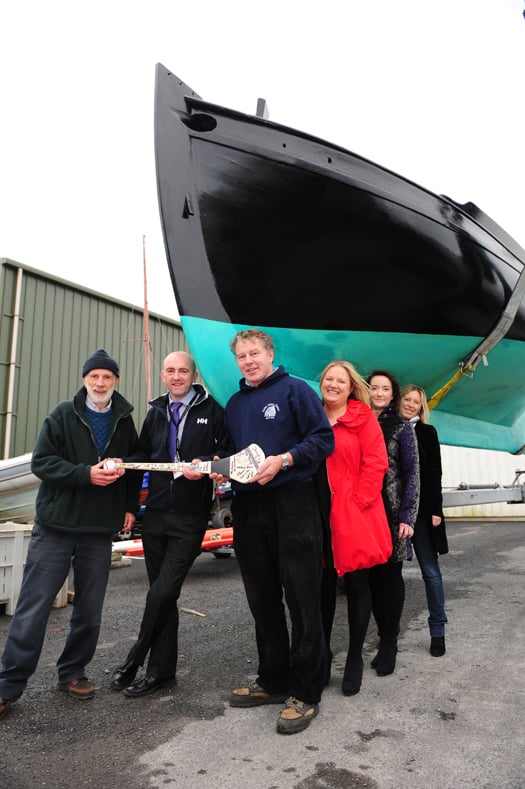
On her way: Nora Bheag heads for Abu Dhabi. Photo: Boyd Challenger
According to the Galway Independent, the boat is currently en route to Rotterdam in a container loaded with a small curach named Noa.
Plans to include turf and bottles of poitin were abandoned, however, due to customs concerns - instead two hurleys and a sliotar will make the trip.
Nora Bheag is expected to reach port by early December ahead of the Volvo Ocean Race fleet which arrives on 1 January, marking the first time the city has hosted and taken part in the race.
Vine says he came up with the idea of the boat swap because of the two countries' shared maritime heritage.
There are many similarities between hookers and dhows, too, from their comparable sail shapes to their usage for fishing and personal transport.
"This will be a huge common shared experience that will build true friendships and a real cultural exchange," said Vine. "I am hugely grateful to Emirates Heritage Club, which has done so much to revive Arabian dhows, for making such a project possible."
The National has more on the story HERE.
Meanwhile a delegation from Galway is set to travel to Spain later this week for the launch of the Volvo Ocean Race.
A week of events begins this Saturday ahead of the start of the race proper on 5 November in Alicante.
When a Novice Paddler Takes On the Liffey Descent
The Irish Times' Conor Pope jumped in at the deep end when he took part in his first Liffey Descent last weekend (VIDEO BELOW).
The first-time canoeist faced his many fears to tackle the challenging course from the K Club in Kildare to Islandbridge as part of a three-man Canadian canoe.
That is, provided they got past the first weir at Straffan, where 60% of competitors take a tumble.
Pope writes: "As we approach its edge, the foaming white water’s roar barely manages to drown out the roars of hundreds of paddlers who’ve already succumbed to its fury."
Surviving that, the trio ploughed through the wodded stretch known as 'the jungle' before avoiding a smash into the wall at Leixlip dam.
From then on in the water flows faster towards the Wren's Nest, and the stuff of nightmares for the novist paddler!
Read more about Conor Pope's adventures on the Liffey Descent HERE.
New Videos Show Two Sides of Kitesurfing in Ireland
Two new videos demonstrate the different sides of kitesurfing in Ireland.
The latter below shows Irish kiteboarder Ryan Coote taking on the intense big surf charged by the winds of Hurricane Katia on the west coast recently.
Meanwhile the former is a more reflective illustration of the kitesurfing scene in Northern Ireland this year.
Both show that Ireland can compete with the best in the world when it comes to quality waves.
Sperm Whale Dies on Dungarvan Beach
A sperm whale that beached on a sand spit in Dungarvan, Co Waterford on Friday has died.
The male whale had been spotted off the coast in the 24 hours before it was discovered 'live stranded' on Cunnigar Strand.
Rescuers said there was "no effective way" of refloating the 10+ metre long whale from what became its final resting place.
"Once they come this far inshore they are pretty much doomed," the Irish Whale and Dolphin Group's (IWDG) Pádraig Whooley told the Irish Examiner.
No decision has yet been made regarding disposal of the whale carcass, but Irish Weather Online quotes Whooley as saying it is "a wasted opportunity when these magnificent specimens are simply hauled off for incineration".
Tall Ships Videos from Waterford
There's been a range of videos coming into Afloat.ie following the Tall Ships visit to Waterford on the 30th June 201.
Below is a short observational documentary shot on The Tall Ships Race. The piece was shot on a Canon 550d camera with a soundtrack from Irish singer/songwriter Cathy Davey "Sing For Your Supper".
Parade of Sail from Waterford, Ireland for the start of the 2011 Tall Ships Race. Place: Passage East, early morning, 3 July, 2011. Photography by Mik Herman.
And some footage of shoreside festivities by Fionn



























